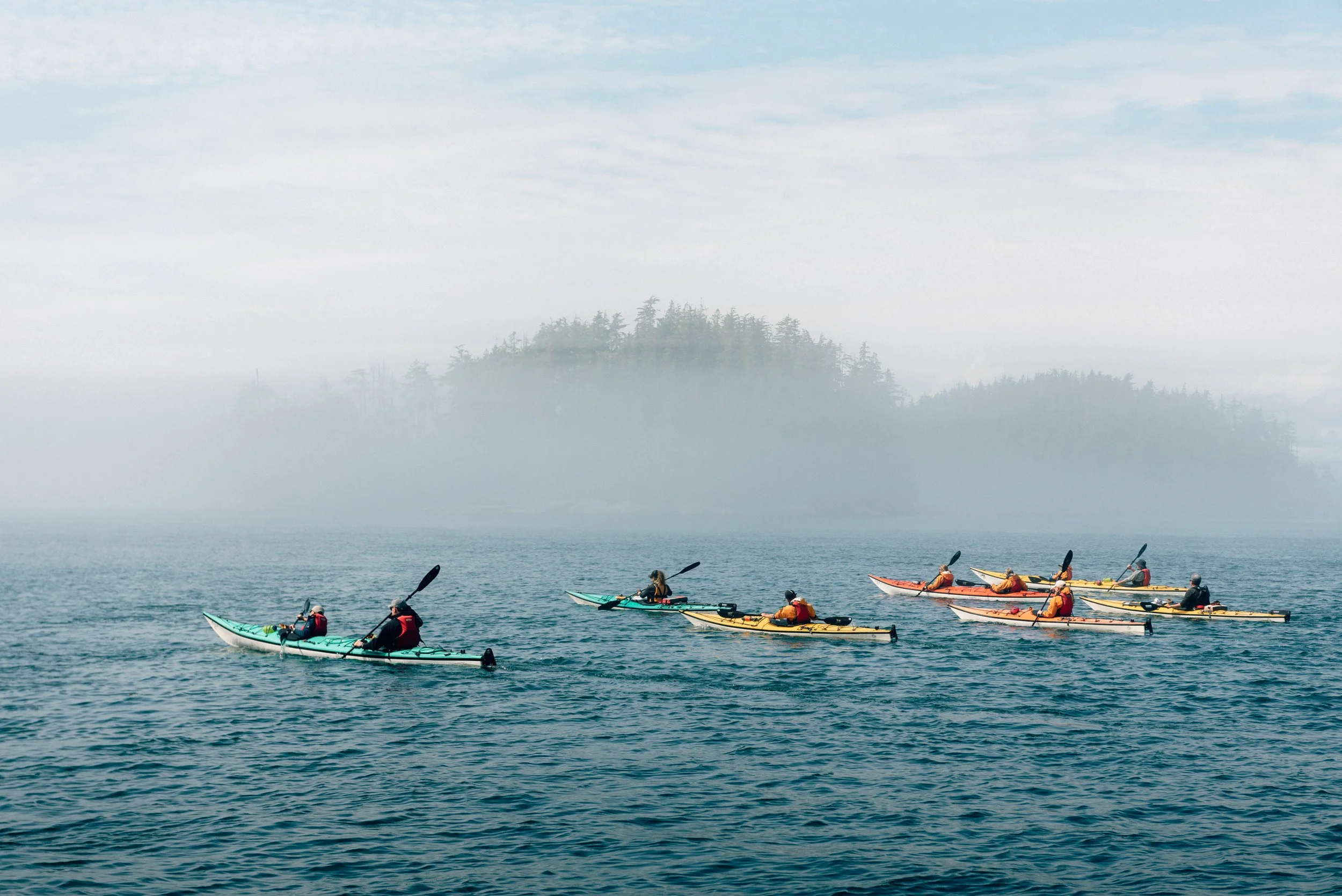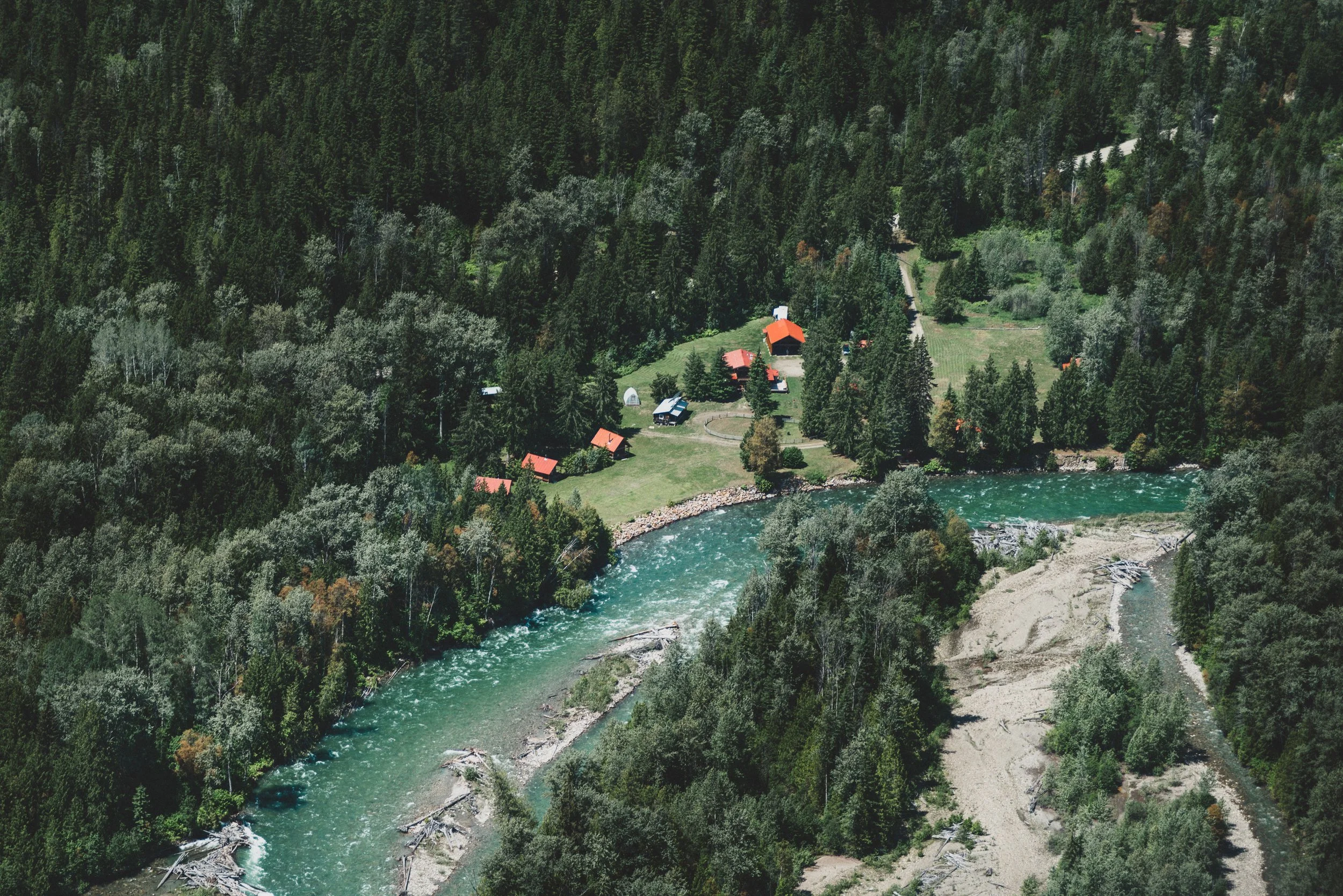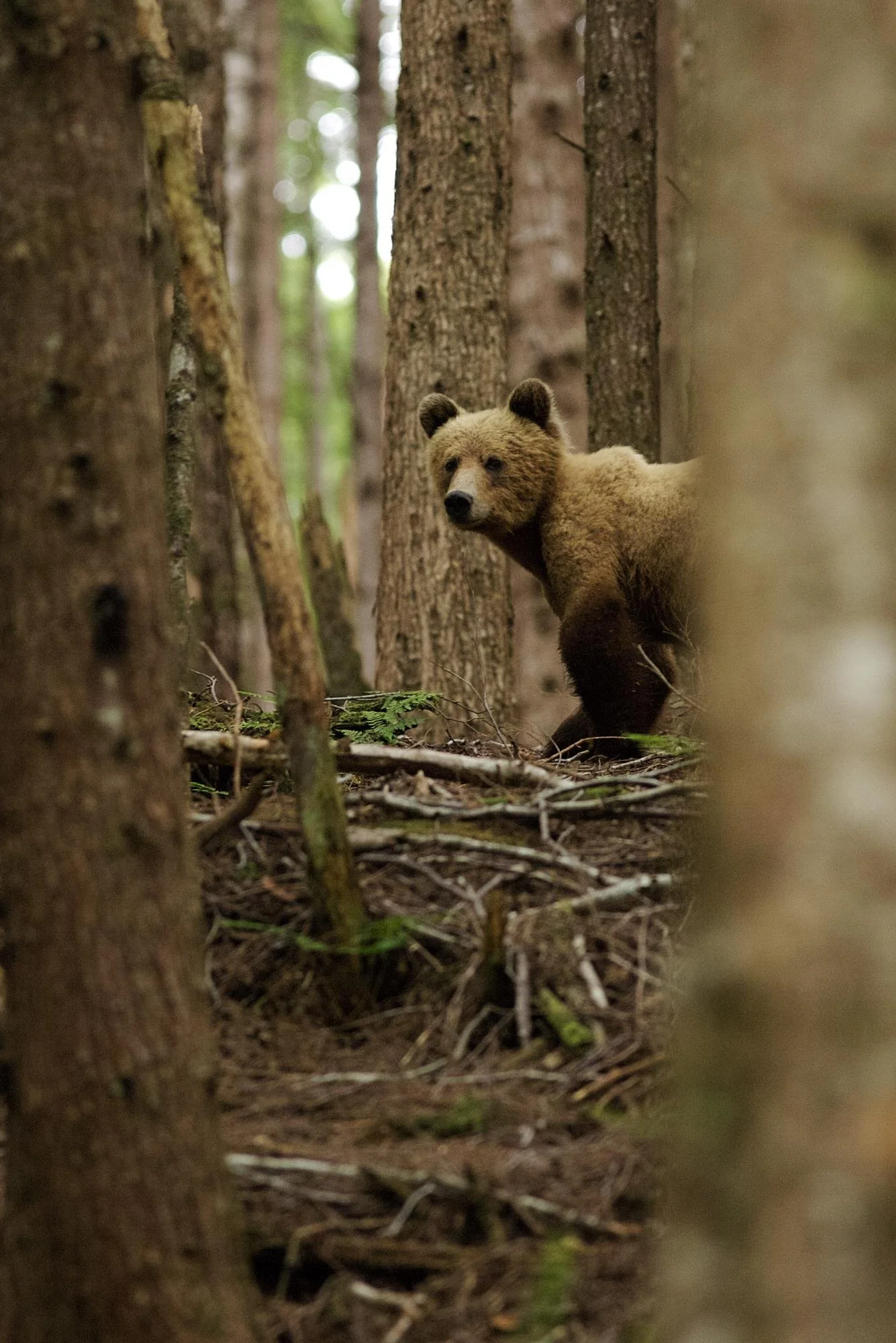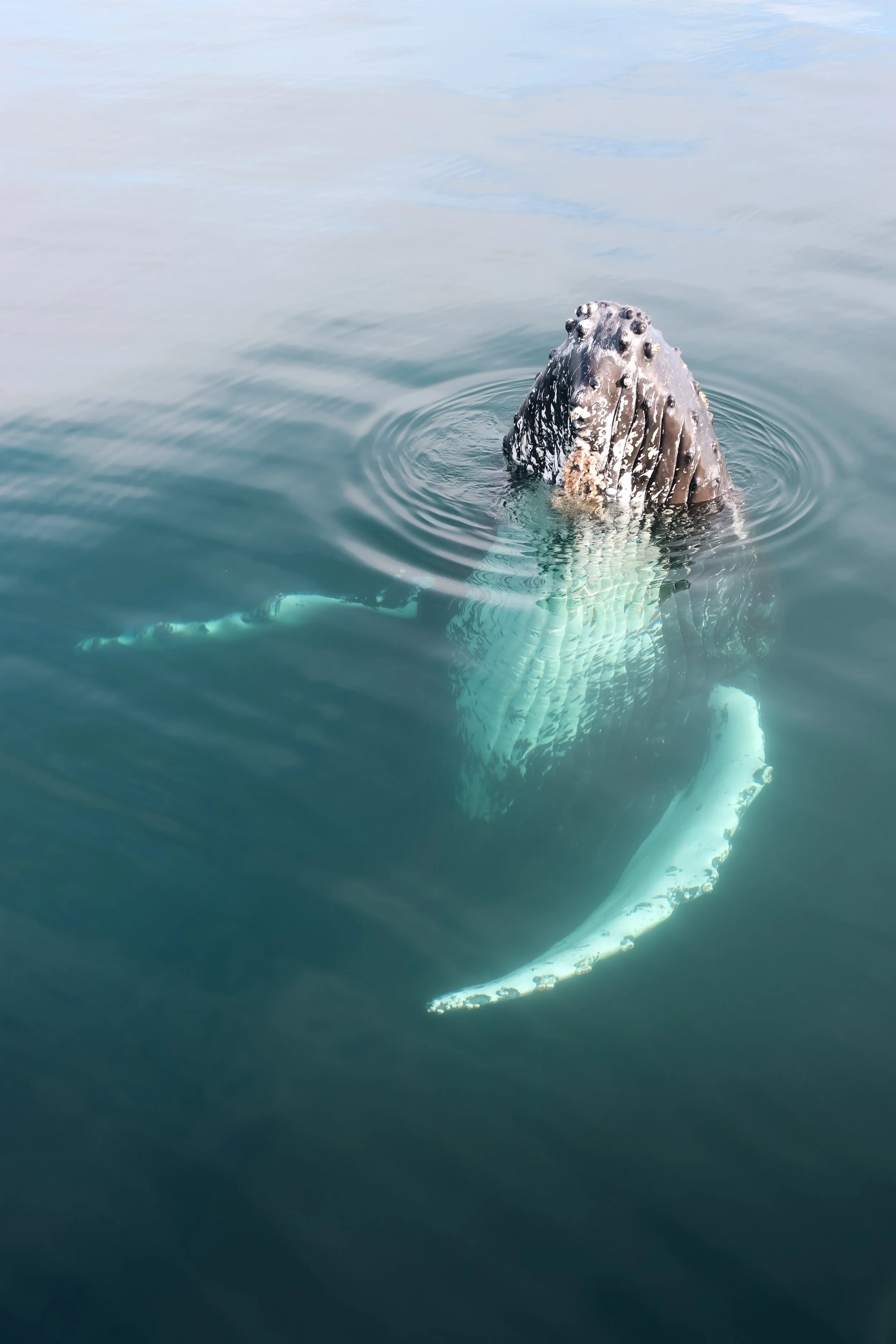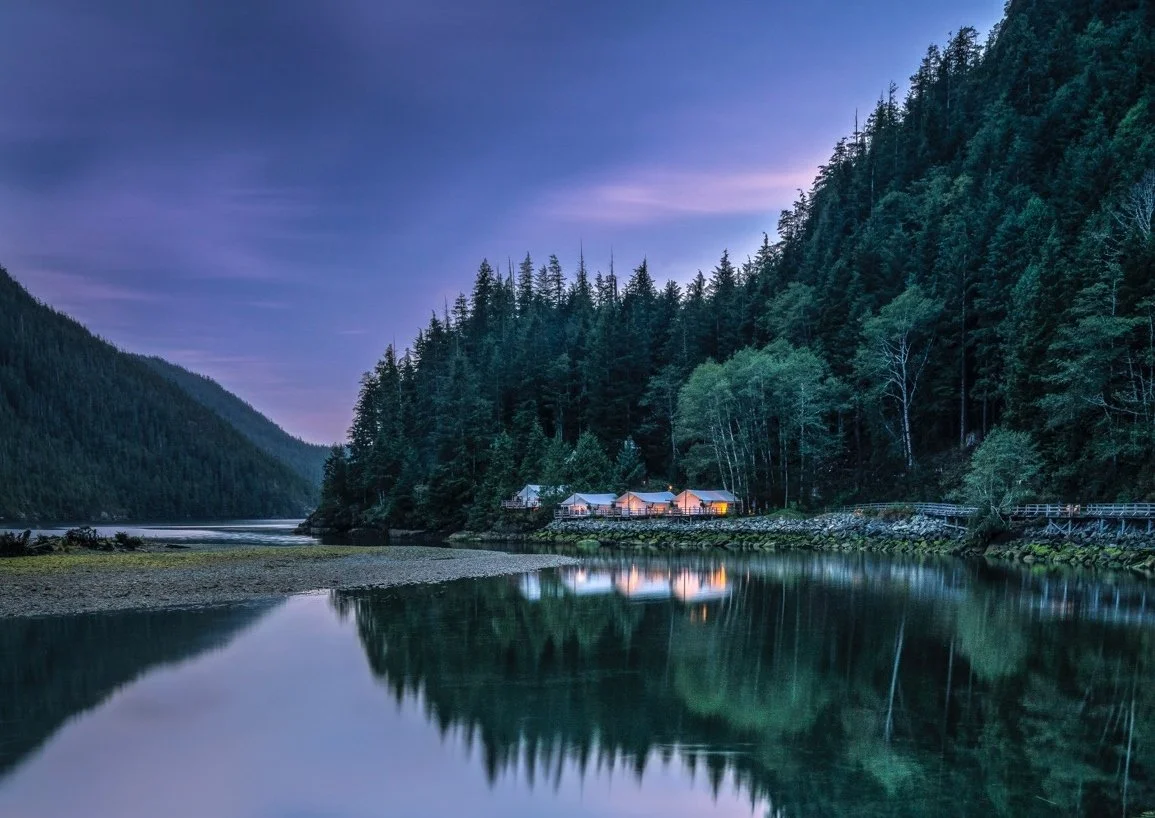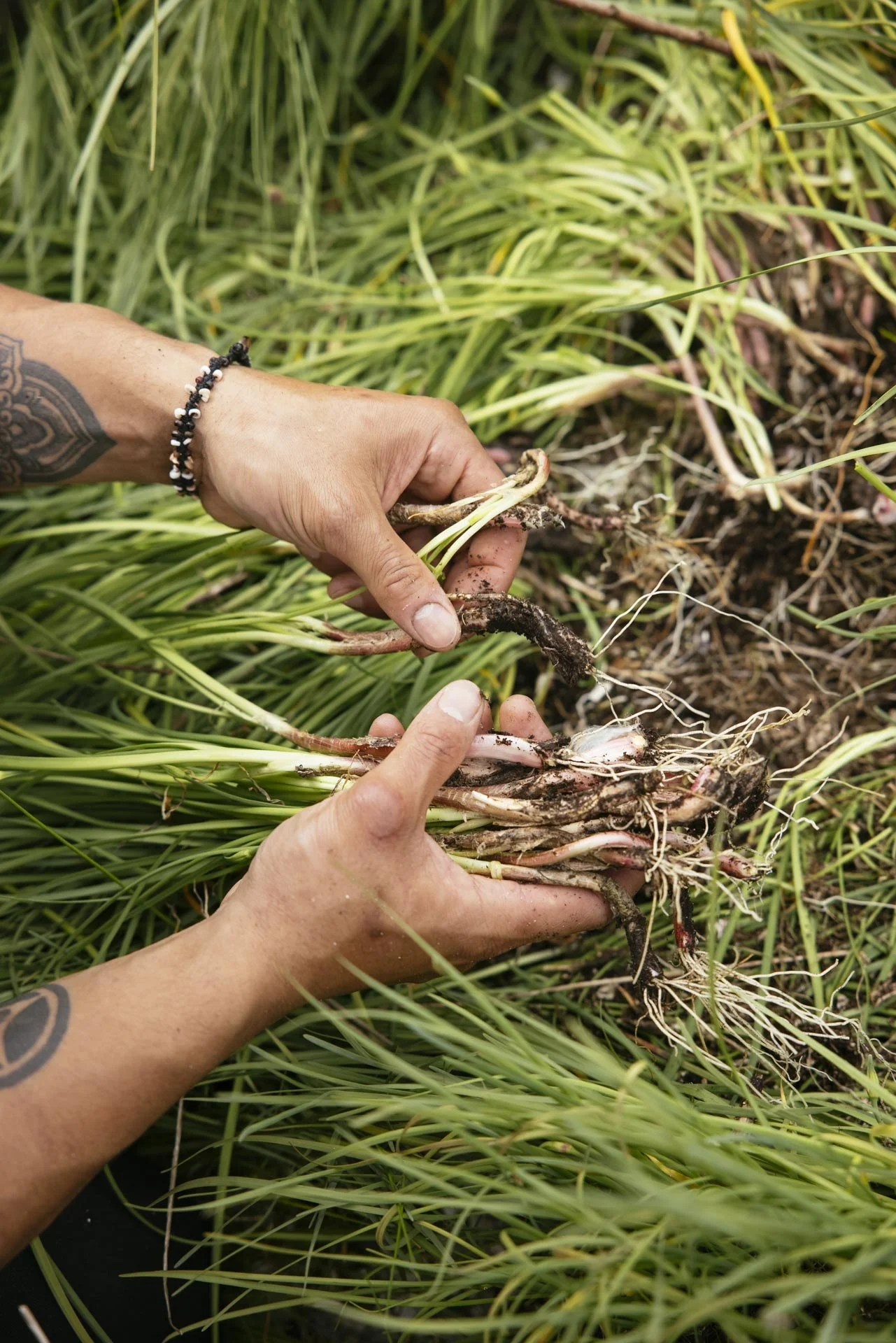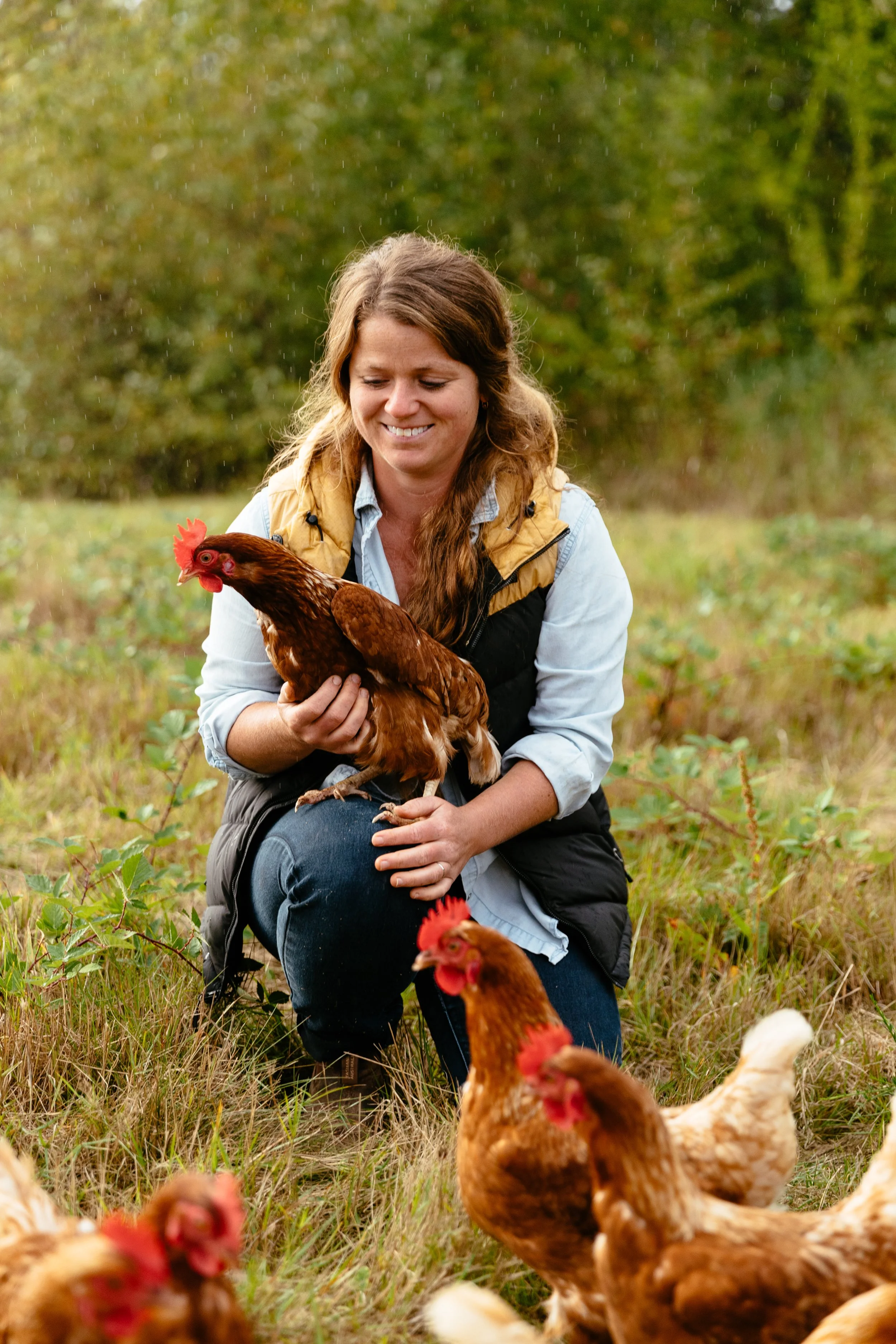Responsible Traveler: Environmental Footprint
Sprawling from the iconic Canadian Rocky Mountains to the expansive Pacific Ocean, British Columbia is home to some of the most awe-inspiring wilderness. It’s a place where you can decompress from everyday routines and slip into the sights and sounds of nature. Whether you pitch a tent beneath ancient forests, horseback ride over rolling plains or trek through rugged mountainscapes, you’re bound to experience the alluring charm of BC and why our wilderness spaces are worth protecting.
To be a responsible traveler in BC is to move with knowledge and respect for the land, wildlife and local communities around us. When we understand ourselves as part of a larger ecosystem, wilderness tourism can be a restorative opportunity for all.
Things to consider when preparing for your next sustainable adventure in BC
DESTINATION MATTERS
We invite you to slow down, engage in research, ask questions and select tourism companies who know the local context. A few things to look out for when choosing destinations and experiences that will empower you to travel with a lighter footprint:
✓ The company belongs to organizations that advocate for a healthy environment;
✓ They contribute to local projects and sustainability initiatives that give back to the environments in which they operate;
✓ They are passionate about Indigenous leadership in the outdoors;
✓ They have badges or certifications like 1% for the planet, GreenStep Sustainable Tourism, Carbon Neutral, or Certified B Corp
Looking for a good place to start? Our members are eco-tourism leaders representing a wide range of wilderness experiences across BC, from remote lodges and guest ranches to horseback riding and kayak expeditions. Explore our list of WTA Members for inspiration.
“As travellers, we have the power to force real change in the industry by spending our dollars with operators, agencies, companies and destinations that take community engagement, decarbonization, reconciliation and sustainability seriously.”
—Robin Esrock, Canadian Geographic Travel
CLIMATE CONTEXT
Wilderness tourism depends on a healthy planet and an equitable future. We support the UN 2030 Agenda for Sustainable Development and the UN Declaration on the Rights of Indigenous Peoples, and we encourage visitors to contextualize decision-making and consumption within our current social and environmental landscape.
When done mindfully, wilderness tourism holds immense potential to accelerate our local response to the global climate emergency. Let’s work together to ensure wilderness tourism drives us toward a thriving and equitable future for all.
EXTREME WEATHER
The geography and climate of BC varies from one region to the next; on one end you have temperate rainforests and on the other semi-arid deserts. Weather can be extreme and unpredictable throughout the year, so it’s always a good idea to monitor local forecasts to see how your visit could be impacted by fires, floods or extreme weather.
Wildfires typically occur in the warmer months from May to September as a result of natural causes like lightning or human activity like campfires and fireworks. Visit the wildfire dashboard for a map of all active wildfires in BC and be sure to follow local fire bans and restrictions within the specific region you’re visiting. When campfires are permitted, practice proper etiquette by keeping flames under control and fully distinguishing when you’re done.
After a 200,000 hectare wildfire swept the lands surrounding Siwash Lake Wilderness Resort in summer 2017, they stand to represent the deeply transformative impact of wildfires. “The fire was a severe example of climate change and how humans have mismanaged the land. At Siwash Lake, in the wake of the fire, we’re bearing down on conservation efforts to preserve all the remaining refugia (lush areas that escaped the flames), and are focusing on reforestation in the fire affected areas. We created the BC Wildland Ecology Centre, a not-for-profit society that serves to showcase and protect the sensitive ecosystem created by wildfires in British Columbia.” Gallop on horses through meadows blanketed by fireweed, learn about local fire ecology, and experience the resiliency and wonder of the natural world at Siwash Lake.
WATER
Water is integral to the BC experience as it helps sustain communities, wildlife and a wide array of wilderness activities across the province. While visiting, be mindful of your personal consumption of water, especially in drought-prone areas or during warm, dry spells. Many remote and rural wastewater systems are also sensitive, so it’s best to be mindful of what you put down the drain (keep it au naturel). While small but significant, avoid single-use plastics and always pack out what you brought in to help keep local waters pollution free.
By choosing businesses who give back to the marine environment, your visit can have a ripple effect long after you leave. Alongside businesses like Spirit of the West, the WTA has been involved in the Marine Protected Areas (MPAs) process to help protect large stretches of coastal areas in BC and to ensure environmental, social and cultural sustainability for generations to come.
Venture into the remote wilderness with Clayoquot Wilderness Lodge, who has been hard at work creating new salmon spawning habitat channels and restoring native stocks around the Bedwell River Watershed where they call home. Whether you’re gliding through the Salish Sea in search of whales or cosying up on a remote island, there’s a wide variety of travel opportunities that are designed to work in reciprocity with the surrounding land.
KEEP THE WILD IN WILDLIFE
British Columbia is home to some of North America’s most diverse wildlife habitats and supports more than 50,000 species. Humans are a small part of a vibrant and vital network of life, and we have a responsibility to ensure our actions as individuals and operators do not change the behaviour of our surrounding wildlife.
“The great truth is that the best possible experience happens as if you were not there.”
—Jackie Hildering, MERS via Nimmo Bay
Curiosity can leave us yearning to be closer, but the best thing we can do for wildlife is to observe from a safe distance, reduce noise and disturbance, and limit conflict by being educated and aware of sensitive habitats. Immerse yourself only in experiences that adopt ethical and responsible wildlife viewing practices.
The North Island Marine Mammal Association (NIMMSA) is a non-profit organization committed to stewardship actions that benefit the local marine environment. NIMMSA represents the shared vision of 25 north island eco-tourism companies who are professionally trained and experienced in identifying marine species and adhere to a collective Code of Conduct. When you travel with a NIMMSA member, you also contribute to a Conservation Fund ($1.00/guest/day fee) that supports marine-based non-profit initiatives off northern Vancouver Island.
The Commercial Bear Viewing Association (CBVA) was formed to promote sustainable bear viewing in BC and to aid in the protection of wild bears and their ecosystems. CBVA represents 22 member companies that offer trips to observe grizzly, black and spirit bears in remote wilderness environments in alignment with a set of Best Practices. “Our guests are able to see bears going about the day-to-day work of living – mating, feeding, hunting, resting, playing, fighting, and learning. This makes us all appreciate bears for what they are and makes wildlife viewing a remarkable and moving experience.”
LIGHTER FOOTPRINT
Your decisions around where and how you travel will have the largest impact on your carbon footprint. Whether you’re paddling through a remote canyon or indulging in wild coastal cuisine, every effort makes a difference.
Transportation: Most tourism emissions come from planes and motor vehicles, so consider staying in one destination for a longer period of time, and cycling or taking public transportation between sites when possible. Book with operators who observe the carrying capacity of the places they visit and who invest in local conservation initiatives to leave spaces better than they found them. Maple Leaf Adventures is known for leading conservation-based expeditions along the coast of British Columbia and Alaska. They recently committed $100,000 over 10 years to the Raincoast Conservation Foundation and the Great Bear Rainforest, and they played a pivotal role in BC’s historic shoreline cleanup with the Small Ship Tour Operators Association.
Energy: It’s common now to see operators actively tracking their greenhouse gas emissions and contributing to decarbonization projects so their operations are carbon neutral or positive. Move mindfully with Outer Shores Expeditions, a carbon neutral and green tourism gold-rated company based on Vancouver Island. Go entirely off the grid with Strathcona Park Lodge, where your visit will be fuelled by hydro-electric power, solar technology and everyday sustainable practices.
Food & Drink: Support local restaurants who source ingredients with care. When ordering seafood, look for Ocean Wise symbols, and always opt for wild caught Pacific salmon as it’s kinder to the environment than farmed fish. Soak in the story of the land and sea at Nimmo Bay, where they serve foraged feasts beneath open skies.
SUPPORT LOCAL
At the core of every decision you make while traveling in BC, choose to support local small businesses as this enriches the communities and the environments we call home.
“Do your research, seek out social enterprises and community tourism, and participate locally. You can choose your hotel and tourism operators with care. I think that will do more than just investing in carbon offsets, and I say that as a carbon accountant.”
—Jill Doucette, one of the founders of the IMPACT Conference
NEXT STOP
→ HelloBC In addition to the well-being of the surrounding land, wildlife and communities, your safety matters. Visit HelloBC for key travel information, starting with Need to Know and Know Before You Go.
IN CASE YOU MISSED IT
→ Responsible Traveler: Indigenous Empowerment Enjoy a list of recommendations and resources to ensure your travel plans support Indigenous communities province-wide.
